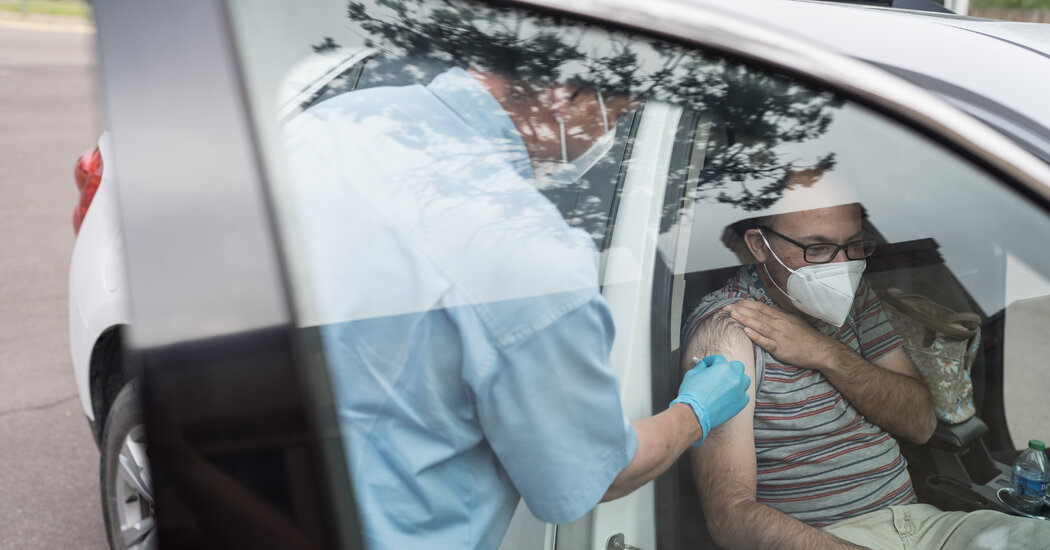
Some experts questioned whether Moderna had gathered enough data on potential side effects. Regulators and scientists have been especially concerned about the risks of the heart conditions myocarditis, or inflammation of the heart muscle, and pericarditis, or inflammation of the lining around the heart.
The F.D.A. in June attached warnings about those risks to the Pfizer-BioNTech and Moderna vaccines, and officials on Thursday cited an elevated risk in men between 18 and 25 who were fully vaccinated with either Moderna or Pfizer-BioNTech.
A key part of Thursday’s discussion revolved around Israel’s booster campaign for the Pfizer-BioNTech vaccine. The Biden administration has been closely watching Israel’s experience, because the country has a nationalized health care system that allows it to closely track vaccine recipients.
A top Israeli health official told the committee that her government’s booster campaign had changed the course of the pandemic there. She said Israel saw dramatically lower rates of both infection and severe disease among those who received a booster shot compared to those who had not. It was not clear, though, whether other factors, such as the decline of the Delta variant, also had an effect.
Dr. Mark Sawyer, a professor in the School of Medicine at University of California San Diego, said even though the Moderna vaccine was different, Israel’s data was compelling. “We can probably extrapolate from the Pfizer data in Israel,” he said, because Moderna’s and Pfizer’s vaccines are “quite similar.”
But Dr. Kurilla of the National Institutes of Health questioned whether Israel’s booster campaign deserved so much credit, noting that the nation’s latest drop in infection rates seemed to fit in with previous waves of the virus.
He asked Dr. Sharon Alroy-Preis, Israel’s director of public health services, whether she believed that a third injection of Pfizer’s vaccine would extend protection for a long time, or whether “you’ll be back in another six months” for another booster.
Dr. Alroy-Preis noted that some vaccines offer protection for years after a booster shot. Whether that is true of coronavirus vaccines, she said, is “the million-dollar question.”
Apoorva Mandavilli contributed reporting from New York.
